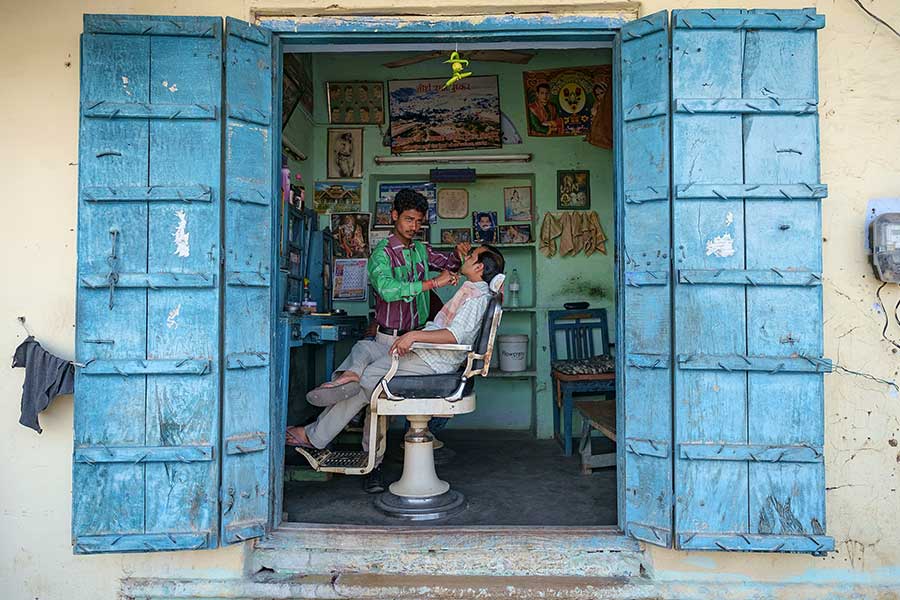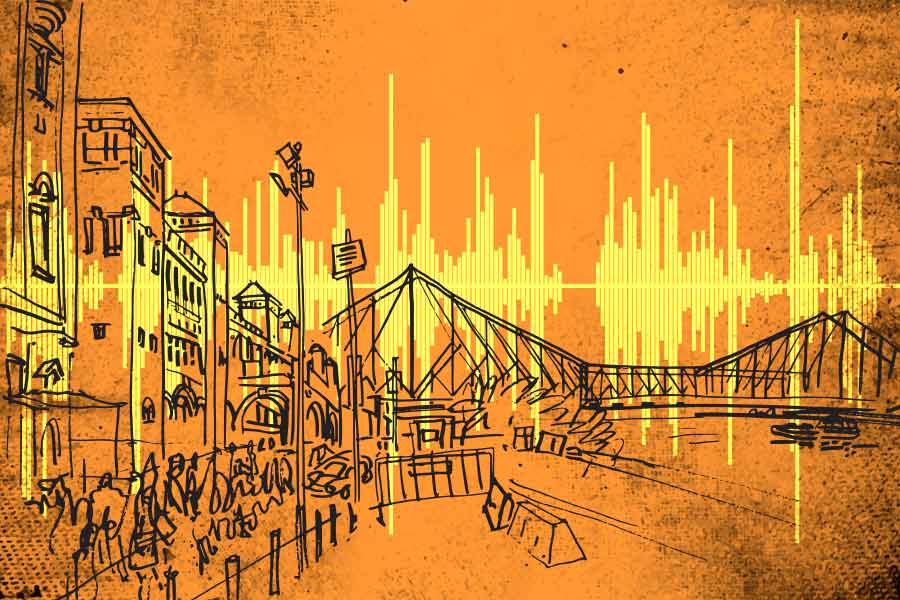It’s those four or five days a month, but for men. A growing sensation that your locks have grown too long. It’s tickling your ear tops, it’s brushing your collar and unintentional kiss curls are popping up all over. You need a haircut. Of course, there will be people who opine that you look “quite cute” with the sprouting foliage and others who bemoan the fact that they don’t have enough hair to interest a barber. Eventually after much procrastination you enter the salon for a much-needed trim. Pretentious though it may sound, “Hairport Saloon” is quite the name for my guy around the corner – I have Manoj Saloon, Golden Saloon and Mukesh-bhai ka Saloon to choose from. This brought me to think about haircuts and hairstyles and how they played a fairly big part in my life at least. It tends to grow on you.
Haircuts, for men, are simple walk-in affairs for the most part. At places like Glitzy Glamour or the upmarket places on Park Street, you might need to make an appointment, but otherwise, it’s a simple call from the doorway, “Are you free?” and a nod indicating “after this guy I have two more and then I’m free” establishes the barber’s availability. Unfortunately, for some women in my circle, it requires long-term planning, appointments and pronouncing the word ‘salon’ perfectly. And then there’s the cost. Ours cost a humble fifty rupees with maybe another thirty thrown in for a shave and massage. Theirs cost a few more zeroes!
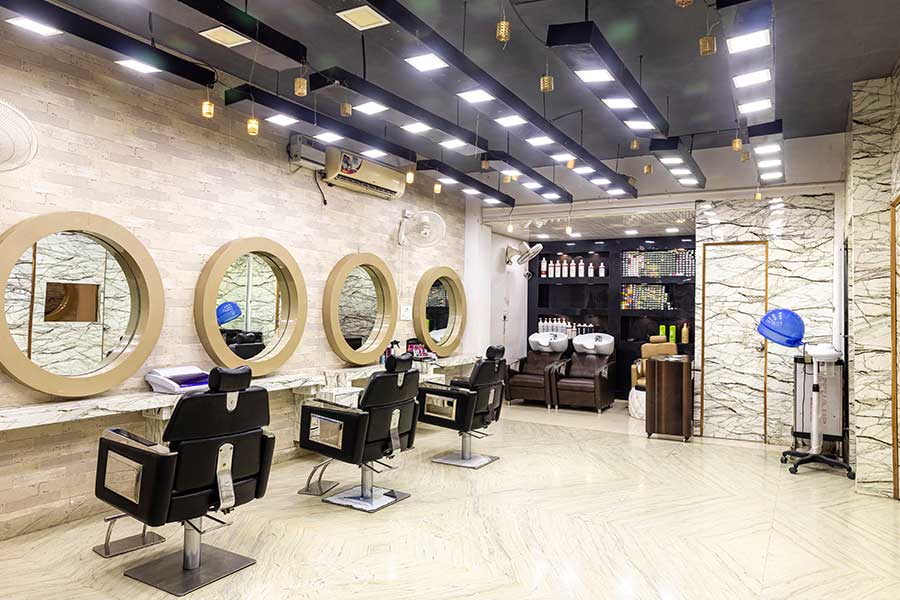
For women, haircuts require long-term planning, appointments and, of course, the astronomical cost Shutterstock
“Train those hairs!” was my father’s regular advice. The reason being, like his, my hair is extra curly. According to him, it needed to be trained to stay put throughout, albeit with a load of oil. His solution to the problem – for the four of us boys – was to take us on a trip to Mars on the corner of Marquis Street and Wellesley Street. His friend ran the enterprise that ensured we did not need another haircut for a couple of months. In between deciding on the ‘crew cut’ or the ‘pudding bowl cut’, we missed the wink as my dad left the shop and went upstairs to the Goan Association of Bengal (GAB) for a game of carrom. We got what he decided. We really didn’t care, though I’m embarrassed to share those photos today.
But it kept us from getting a forced haircut at the back gate of the school. The authorities were pretty tough back then. My hirsute classmates dropped their collars an inch or two and craned their necks forward in a desperate bid to avoid getting caught for long hair – hair that touched your collar. There were two options for hair cuts – either you went to this fancy place at the back of the school, it was called 007 or 003B or something dashingly similar, or else you could have the visiting roadside barber cut your hair in the play area, at a much cheaper rate. Both were billed to your parents, of course. They had us by the short hairs!
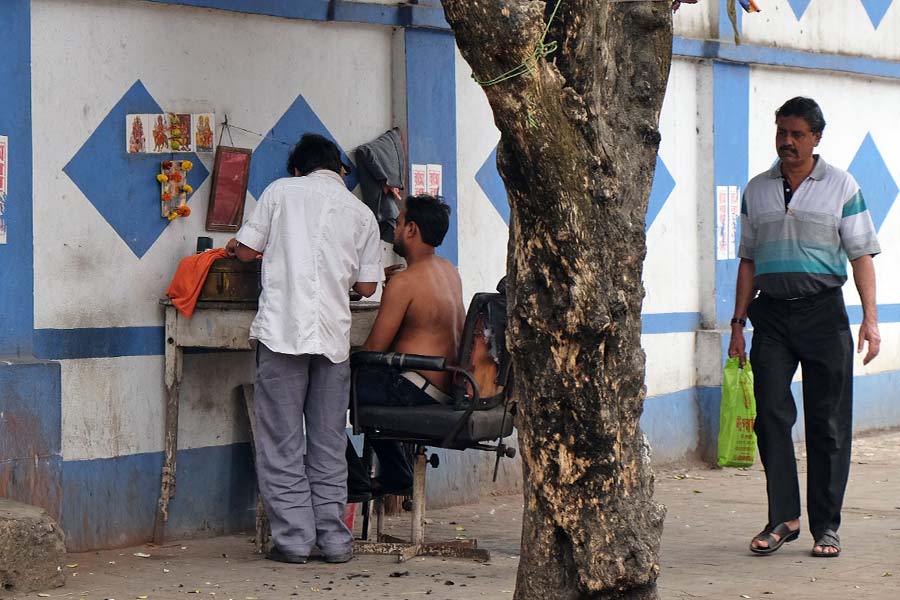
Out on the pavement, these barbers often set up “shop” which consisted of a rickety high chair, a tree-hanging mirror and various implements of the trade. Above, just such a set-up in Kolkata Shutterstock
Out on the pavement, these barbers often set up “shop” which consisted of a rickety high chair, a tree-hanging mirror and various implements of the trade. The less affluent among them roamed around with a wooden box in which everything from scissors, to razors, to brushes, aluminium cups and bottles of water sat side by side with a tiny hand-held mirror – it was your hand that held it, of course. There was no chair and often these arrangements were referred to as ‘italian’ haircut – if you wanted to sit on anything other than your haunches you were told, in Hindi, ita le ana, or ‘bring a brick’.
I didn’t know, till much later in life, that the word napit was not the name of the visiting barber, it was and is apparently his caste. They are a tribe that hails from a neighbouring state, assigned duties other than trimming school boys’ hair. They handle religious ceremonies such as shearing off one’s locks before the poite or thread ceremony and, of course, the sad tonsuring when an elder expires. Many of them have set up “salons” across the city, and for obscure reasons they are shut on Thursdays. When I say salons, I mean ‘saloons’ and even ‘seluns’! It’s like restaurant, ‘restorent’, and many other alternatives that deserve a separate write-up.
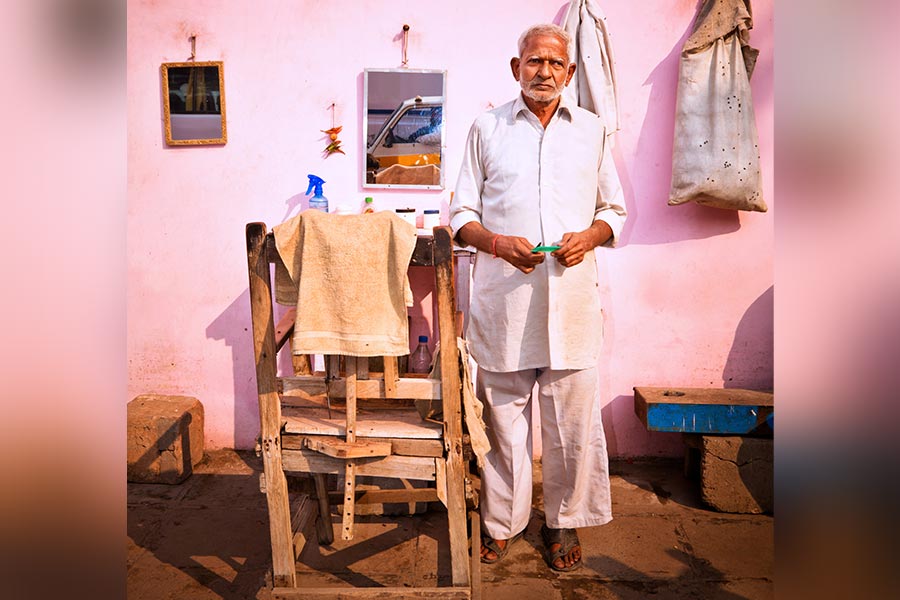
‘I didn’t know, till much later in life, that the word napit was not the name of the visiting barber, it was and is apparently his caste’ iStock
Calcutta 16 – Ripon Street and the surrounding areas where I grew up – had its fair share of flashy salons where local youth would walk in, pick up a comb and proceed to style their hair without so much as a by-your-leave to the barber. The loud music, strong deo smells, cheap shaving creams and overpowering oils followed by head, neck and shoulder massages, placed these places on a different pedestal. These are also the hangouts for local news and gossip with the barber punctuating his ministrations with a comment on the country, its government and the pain of living, when he’s not on his hands-free phone to his hometown.
We were allowed longer hair in college, and if you played rock music, you could skip a haircut or two and starve the barber as my friends would quip. My curly hair grew unruly – barbers tried explaining the physics of sine waves to me. If it’s not long enough and we cut it, it will stick right out at various angles. In our day there were limited choices – long hair was long, short hair was short and the variations were on the sideburns, moustaches and beards. Remember Engelbert Humperdinck, Tom Jones and the rock stars were our role models. And some of us struggled to get the Hendrix afro (mine was natural).
Today barbers, tonsorial artistes, can create cornrows, write footballers’ names on your head and the long hair gets tastefully tied into man buns or hung out as dreadlocks! Not to mention the various colours that your beautiful black hair, once grey, can assume. Friends have gone orange like some presidents, but at the end of the day it’s your roots that define you. So, the barbers will also dye for you. They don’t do transplants, or resurrections, sorry.
Unless you go skinhead by choice or risk the St Anthony’s ring defining your age.
